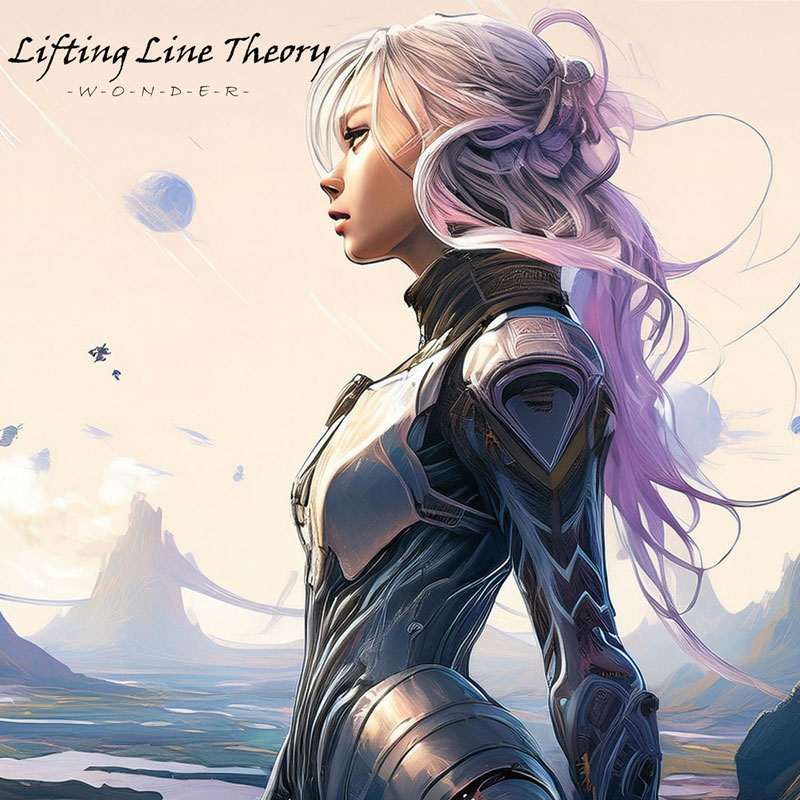Lifting Line Theory – Wonder (self-release, 2025)
By fusing deep-rooted reverence with personal history, Lifting Line Theory’s Wonder doesn’t just pay tribute to the golden era of progressive rock, it lives inside it. The debut release from this quietly ambitious duo is a four-track suite of analog spirit and digital devotion, shaped as much by loss as by love for the genre. It’s a record that invokes the ghosts of Yes and Genesis, but refuses to settle for mere pastiche.
At the heart of Lifting Line Theory is Chris Carroll, a New Jersey-born aerodynamic engineer now based in South Carolina. On Wonder, he plays every instrument, guitars that glisten with Steve Howe’s precision, drums that nod to Neil Peart’s dynamic range, and bass lines that would have made Chris Squire smile. Carroll’s technical skill is never in question, but what sets the record apart is the emotional engine driving it.
Indeed, Wonder is more than a debut; it’s a posthumous collaboration. The album’s vocalist and co-writer, referred to only as Little Miss, was Carroll’s musical partner and close friend, a classically trained pianist whose life was tragically cut short by a drunk driver. The two began writing these songs decades ago, and Carroll has since painstakingly restored and completed them from their original demos. Her vocals, strong, clear, and emotionally unguarded, are the album’s north star, bringing gravity and grace to its intricate compositions.
The title track is a sweeping, side-spanning piece that evokes the LP-era ambition of Close to the Edge or The Lamb Lies Down on Broadway. Meanwhile, the other three songs scale back the scope slightly but maintain the same level of craftsmanship, each balancing complexity with accessibility. What emerges is a sense of place, not geographic, but temporal. These songs feel born of a time when rock music dared to be cerebral, expansive, and spiritual all at once.
And yet, Wonder doesn’t feel stuck in the past. Carroll’s arrangements are deeply engaging and feature modern elements. Additionally, his DIY production, self-recorded, mixed, and mastered, gives the album a raw intimacy often missing in the genre. This is progressive rock stripped of ego, elevated by heart.
If the album gains traction, Carroll has plans to release more material from the pair’s archive, perhaps even assemble a live band. For now, Wonder is a striking introduction to a project that manages to be both personal and universal. It’s a love letter to a lost collaborator, a genre-defying time capsule, and, most impressively, a successful first step for an artist who never expected to take the stage at all.
Buy Wonder.

